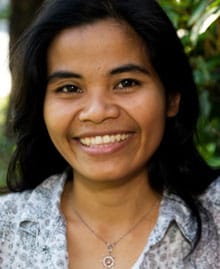Developing Woman-Centered Products
Expanding Women's Options
We know from the contraceptive field that offering product choice increases overall contraceptive use. Modeling studies suggest that a similar increase would also be seen in the HIV prevention field by expanding the range of product options.
That is why IPM takes into account women’s prevention needs, which change throughout their lives, from the earliest stages of product development. Expanding the HIV prevention portfolio with new tools that meet women’s individual needs is just one way to help empower them—but it is an essential one, particularly in regions where women remain at high risk.
This means offering women a range of self-initiated tools they can choose from and use privately, on their own terms. IPM is researching different formulations and delivery methods to ensure that microbicides will not just be technically effective but also be used in the real world.
Products That Meet the Needs of Women
IPM conducts market research and product acceptability studies in communities where the need for new HIV prevention strategies are greatest, to understand the preferences, barriers to product use and other factors that influence women’s HIV risk.
These studies ask participants about their experiences using various vaginal products, and ask women and their male partners about their effect on their sexual relationships.
To date, IPM has conducted several studies assessing the preferences of women and their partners for a variety of products, including vaginal gels, films, tablets, soft gel capsules and vaginal rings. IPM’s lead candidate, a monthly vaginal ring containing the ARV dapivirine that received a positive EMA opinion in July 2020, was found in several studies to be highly acceptable to women and their male partners.
Combining HIV Prevention and Contraception
Women don’t compartmentalize their sexual and reproductive health needs. Access to integrated HIV prevention and contraception information, products and services is essential to meeting those needs and empowering them to stay healthy.
Under a grant from USAID, IPM is developing a three-month multipurpose vaginal ring that contains the ARV dapivirine to protect against HIV infection as well as a contraceptive hormone. The multipurpose ring recently completed two Phase I trials.
